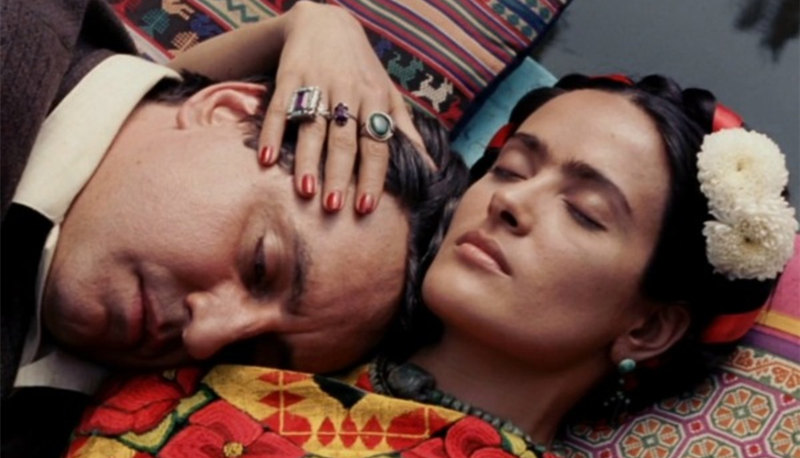Before I re-watched “The Verdict”—new to Blu-ray this week—I could only recall one image from the film: that of star Paul Newman as alcoholic attorney Frank Galvin, playing pinball in a dark bar. Director Sidney Lumet had placed the game in an alcove to further heighten the sense of isolation, and Newman and his beer were silhouetted against bright daylight to underscore that he was drinking by himself in the middle of the afternoon. No one else was in the bar.
Galvin has been having such a rough time of it in this 1982 courtroom drama that you have to wonder why he wasn’t DISbarred. He’s been reduced to pretending to know the deceased and handing out his card at funerals. As a favor, his friend and former partner (Jack Warden) hands him a medical malpractice case that’s a sure-thing, slam-dunk, money-in-the-bank settlement out of court.
But something happens to Galvin when he visits the victim—a young mother who’s been reduced to a vegetable and lies in a coma. Never mind that the Catholic hospital has offered a large settlement as well. Galvin surprises everyone by announcing he’s going to trial.
Is he doing it because he wants to do the right thing, wants to help the victim get what she deserves, or is he doing it because he sees in this case one last chance to salvage his dignity, his reputation, and his career? Or maybe just to go out on top, or to feel what it was like to plead an important case just one more time?
In “The Verdict,” which earned five Academy Award nominations (Best Actor, Best Supporting Actor, Best Director, Best Picture, Best Screenplay), what can go wrong does go wrong. The defense attorney (James Mason) proves to be a master strategist outside the courtroom as well as inside; a supposedly impartial judge (Milo O’Shea) seems to have made up his mind already; and even a woman with whom Gavin had become romantically involved (Charlotte Rampling) turns on him. As this drama plays itself out methodically, we see what made Newman one of the great actors of his generation. Scene after scene of this intelligent David Mamet screenplay is rendered with on-the-money subtlety, and Newman absolutely nails the desperation in his character while still hanging on to his dignity.
Though “The Verdict” came up empty at the Oscars, losing Best Picture, Actor, and Director to “Gandhi” and Ben Kingsley, Best Supporting Actor to Louis Gossett Jr. (“An Officer and a Gentleman”), and Screenplay to “Missing,” it remains one of Newman’s best films from late in his career. It’s also another solid courtroom drama from Lumet, who’s most famous for “12 Angry Men” (1957).
Video:
As with other films new-to-Blu in this most recent wave from Fox, there has been no apparent attempt to restore the film, but the source materials were apparently strong enough to make for a decent AVC/MPEG-4 transfer. There are flecks and imperfections that come up, and a thin layer of filmic grain throughout. But the colors, though tethered to a brown-and-grey palette, are natural looking, as are skin tones. You notice this particularly in the contrast between Newman and the more pasty-looking Mason. I saw no evidence of compression issues or DNR craziness.
Audio:
The featured audio is an English DTS-HD MA 5.1 that’s also solid. But the rear speakers take another holiday with this dialogue-driven film. Everything is front and center, but it’s important to note that the silences are free of hiss, pop, and other Rice Krispies’ effects. There’s also an English Mono in DTS-HD, with additional audio options in French DTS 5.1 and Spanish Dolby Digital 1.0. Subtitles are in English SDH, Spanish and French.
Extras:
There are actually some nice bonus features, starting with a surprising commentary from both Lumet and Newman. Even though the men weren’t in the same room, and Newman’s tracks—minimal, by comparison—were obviously added later, it’s still valuable to hear both men talk about the film. Lumet especially divulges such things as lighting and color choices and some of the shots in detail.
There’s more Lumet in “Sidney Lumet: The Craft of Directing” (11 min.), with Lumet talking about his style of direction and the important role that rehearsals play. Then it’s Newman’s turn with “Paul Newman: The Craft of Acting” (9 min.), in which the actor talks about his own style and method. We’re given three making-of bonus features, each of them so strong that I’d be hard-pressed to name a favorite.
“Milestones in Cinema History: The Verdict” (23 min.) gives the history of the film, from early treatments to pre-production, production, and finally post-production. There are insights aplenty here. But I have to say that I liked the brief “Making of The Verdict” (9 min.) almost as much, because it’s a vintage piece and therefore everything is still fresh in the actors’ minds. Finally, there’s “Hollywood Backstories: The Verdict” (22 min.), another making-of feature that repeats a number of points but also touches on new areas.
The original theatrical trailer rounds out the bonus features.
Bottom line:
Count me among those who think the Best Actor Oscar that Paul Newman won for “The Color of Money” was a make-up call. The groundwork was laid right here in “The Verdict,” and with the equally accomplished “Absence of Malice” a year earlier.


